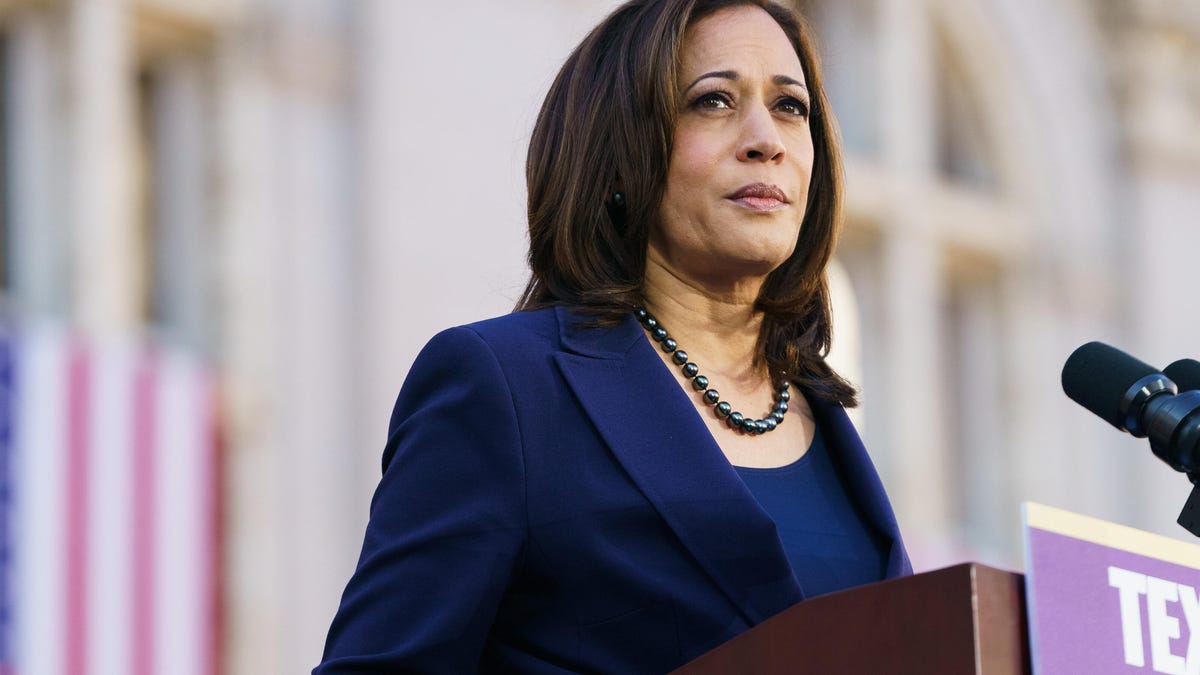Kamala Harris to be vice president. Here's what she means for tech
Democratic challenger Joe Biden promised to choose a woman as his VP running mate. Here's how his decision could affect the technology industry.

California Sen. Kamala Harris is Biden's VP pick.
Former president Joe Biden and California Sen. Kamala Harris won the bitterly contested 2020 election, major news organizations reported on Saturday. Harris will become the first female US vice president and will make history because she's the first Black woman and the first Asian American to serve in the country's second-highest office.
Harris quickly changed her Twitter bio, which now identifies her as "Vice President-Elect of the United States." She also tweeted a video with the message acknowledging the work ahead of the incoming Biden administration. "Let's get started," she tweeted.
This election is about so much more than @JoeBiden or me. It’s about the soul of America and our willingness to fight for it. We have a lot of work ahead of us. Let’s get started.pic.twitter.com/Bb9JZpggLN
— Kamala Harris (@KamalaHarris) November 7, 2020
Technology issues, including net neutrality, rural broadband and online privacy, will be on the list of tasks to accomplish though they will likely take a backseat to fighting the COVID-19 pandemic, which has killed more than 235,000 people in the US and almost 1.25 million worldwide. The health care crisis has created related tech issues, with the rapid adoption of telemedicine and virtual learning in education, both of which have shined a light on concerns about who does and doesn't have access to the internet.
The next four years could see notable changes in the industry, influenced by the Oval Office. Democrats and Republicans have questioned the influence of big social media platforms like Facebook and Twitter, and both parties have displayed a willingness to take on Silicon Valley.
In congressional hearings in July, Facebook's Mark Zuckerberg, Amazon's Jeff Bezos, Apple's Tim Cook and Alphabet's Sundar Pichai were grilled about allegedly monopolistic practices. The administration of President Donald Trump has also used Chinese-owned tech companies, including TikTok and Huawei, in its broader approach toward dealing with China.
Biden, who served for eight years as vice president under President Barack Obama, has expressed concern about the outsized power and influence of Big Tech. He's suggested that some legal safeguards may need to be amended, such as Section 230 of the Communications Decency Act, which spells out protections for online platforms.
Here's what we know about Harris' stance on tech issues:
A California senator and former candidate in the 2020 presidential race, Harris has burnished her name in Washington by grilling Trump nominees and officials from her seat on the Senate Judiciary Committee.
Harris, 55, is known for being a tough-on-crime prosecutor earlier in her career. That toughness, however, didn't carry over to Big Tech companies when she was California attorney general, critics charge. During her time as the state's top law enforcement officer, Facebook and other companies gobbled up smaller competitors. Harris, like regulators under Obama, did little from an antitrust perspective to slow consolidation, which many members of Congress now question.
During her 2020 presidential bid, Harris' stance on consumer protections and antitrust issues weren't as tough as those of some of her rivals, especially Sen. Elizabeth Warren, who called for the breakup of large tech companies, like Facebook and Google.
Still, Harris was vocal last year in urging Twitter to ban Trump from the platform for "tweets [that] incite violence, threaten witnesses, and obstruct justice." This was a demand Twitter rejected. She has also been critical of Facebook for not doing more to rid its platform of misinformation.

